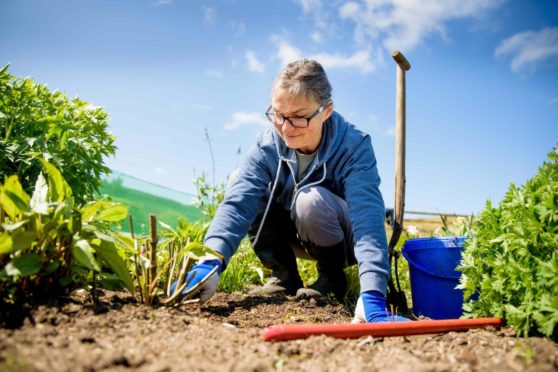People without their own outdoor space have been more likely to struggle with their mental health during the pandemic, new research has shown.
Health experts from Aberdeen University and the University of the Highlands and Islands (UHI) surveyed 2,969 participants in June and July last year.
Professor Gill Hubbard, from UHI, led the project which has shown having an outdoor space benefits mental health. Participants with a garden or patio reported better mental health than those without an outdoor space.
She said: “The study also shows that people living in affluent areas had better mental health than those in deprived areas. Taken together, this shows that the effects of this pandemic are worse for people who do not live in homes with accessible gardens.”
Key findings
The research found women “consistently” reported more anxiety and depression than men, while young people report greater anxiety than older people.
The study suggests that improving access to residential outdoor spaces could help to improve individual’s mental health during a pandemic.
For those identified as a higher risk of getting Covid, the link between a lack of outdoor space was greater.
A total of 407 adults participating in the study were in the shielding category and they reported that the restrictions of social distancing in public outdoor spaces made their mental health suffer.
Continuing the study
Professor Diane Dixon, from Aberdeen University, is now completing further study on mental health during a pandemic.
She said: “The research team is currently investigating whether there is also a link between where people live, their risk beliefs and whether they will get the Covid-19 vaccine.
“We will present this evidence to government to support national efforts to keep people safe and also protect their mental health during this and potentially future pandemics.”

